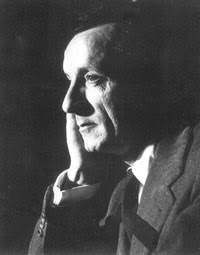This is a repost from a while back. I have a busy week or so ahead working on phd stuff, but wanted to re-share this and see your thoughts on it.
 Luckily Amazon isn’t always flaky, and this week suggested a book I would love to get my hands on (except, perhaps, for the price and the fact that I have a stack of un-read books before me that are more directly related to my thesis).
Luckily Amazon isn’t always flaky, and this week suggested a book I would love to get my hands on (except, perhaps, for the price and the fact that I have a stack of un-read books before me that are more directly related to my thesis).
I have long admired the ideas of Maurice Merleau-Ponty. Merleau-Ponty was a phenomenologist, one who sets experience itself as the starting point for philosophy, for understanding life. In that respect he finds good company in Buddhist thought. So the new book, edited by Jin Y. Park and Gareon Kopf, called Merleau-Ponty and Buddhism, is a welcome addition to the growing field of East-West comparative philosophy and ethics.
My only disappointment is in seeing that the authors use almost entirely East Asian, Mahāyāna philosophies as interlocutors with Merleau-Ponty. That said, the introduction, partially available on Amazon, orients us in the following dialectic:
- Hegel’s introduction of phenomenology as a response to Kant’s noumena/phenomena dichotomy, endlessly investigating the philosophical ‘onion’ of representation and interpretation in search of ‘Being’ (OBJECTIVE)
- Husserl’s “return to the things themselves,” seeking to reground phenomenology in the subject’s experience here and now (SUBJECTIVE)
- Merleau-Ponty’s attempt to blur the (false) boundary between subject and object altogether, focusing on the body as that which experiences and that which is experienced.
The connection to Buddhism that is first suggested is with pratītya-samutpāda (Sanskrit) or paticca-samuppāda (Pali), aka dependent co-arising. As the editors note,
“Dependent co-arising at its bottom is a theory of causation, but it negates a mechanical causal theory in which causes and effects are clearly separable and identifiable…. [It] demonstrates the nonidentity of identity in the sense that an entity is at all times already a matrix of diverse causes and conditions that contribute to the existence of a current event…. past, present, and future [have] significance only provisionally and in linguistic and commonsense convention.” (p.4)
That’s a mouthful, but it shows that the door is wide open for dialogue between contemporary phenomenology and the earliest core of Buddhist thought.
So why are there no articles by Theravādin (or even Tibetan) scholars? Here are the full contents:


The reasons could be many. But one hopes that in the future this bridge – from France to East Asia, via America – might be extended even further West to Tibet and Theravādin countries.
Perhaps, in volume II, some years down the road, I can contribute something 🙂 Until then, here’s a sample (edited a bit) from a paper I wrote in an undergraduate philosophy course on Merleau-Ponty:
For Merleau-Ponty, the notion of a transparent subject, or “I” looking upon the world through my body, gives rise to an inescapable solipsism. This solipsism, however, is refuted by our very experience in the world. Solipsism only comes about through reflection after-the-fact of our experience. And this very experience which enables solipsism arises always in a world already populated with others. Likewise, our experience of speech gives us others by its presupposing an intentional likeness before us. Through examining language as we experience it, not only does it become clear that viewing ourselves as disembodied “thinking-things” is impossible, but also that language itself cannot be separated from the world as an object in it.
While it may look convoluted at first, and doesn’t most philosophy (perhaps art, poetry, literature too, for the uninitiated), with some practice of looking at oneself and one’s life through the lens of phenomena, the odd divide of body/mind or self/other does begin to diminish. In that sense it is therapeutic in the way that meditation is. Of course, neither is merely therapy, but both serve this function in their quest for a final understanding and acceptance of reality as it truly is.











